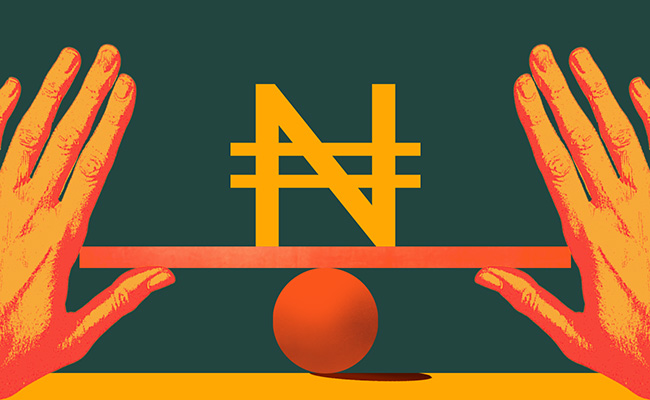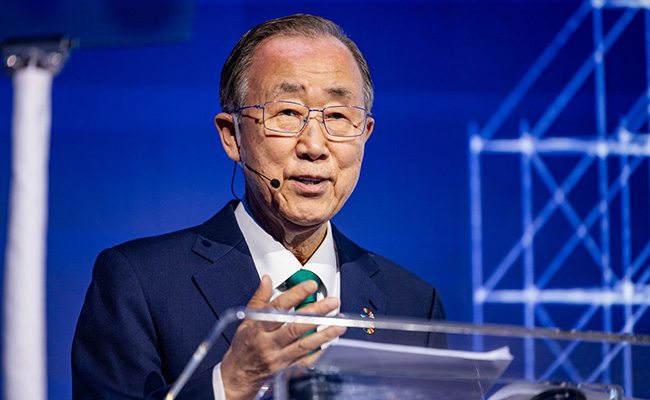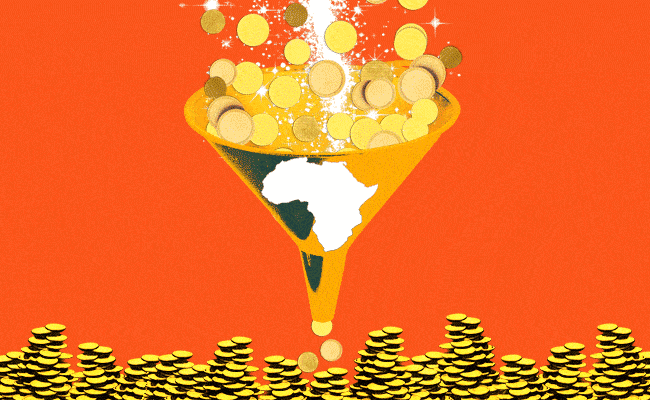“Cash is king” has historically been true for Nigeria, but the king of kings is the almighty dollar. Arriving at Murtala Muhammed airport in Lagos, the sheer number of people (quite often elderly men) wandering around with bricks of Nigerian naira to exchange for dollars, or any other hard currency (South African rands not included), is staggering.
As recently as 10 years ago, cash dollars were best to pay for anything and everything on a trip to Nigeria. This included hotel accommodation at establishments like the Four Points by Sheraton in Victoria Island. Cards were not widely accepted, and even today, there are often problems with foreign card payments.
In 2015, the dollar-naira rate was fixed at between NGN197/$ and NGN199/$. In mid-June of 2016 the government made efforts to unpeg the rate and allow the market to determine the price, certainly not the first time this had been attempted. By the end of that month the rate was about NGN292 to the dollar.
The trend of depreciation continued but the gradient was gradual – until the June 2023 suspension of Godwin Emefiele, the governor of the Central Bank of Nigeria (CBN) by newly elected President Bola Ahmed Tinubu. This saw the naira depreciate by more than 35% in a single day’s trading.
The issues surrounding depreciation were exacerbated by the multiple exchange rates that existed, and the widening gap between the official rate and the parallel market rate. Towards the end of January 2024, estimates showed the parallel rate was almost double that of the official rate. Hardly surprising, then, that the result was a dearth of foreign exchange.
Reports suggested that the bulk of foreign exchange transactions took place on the parallel market, and anyone who had dollars was hanging onto them for dear life, whether individuals or corporations. It became increasingly difficult for anyone to get earnings out of Nigeria in dollars, and as one investor stated, the great returns were immaterial if shareholders couldn’t see them in their bank accounts.
People came up with creative ways of externalising their earnings, evidenced by the urban legend told of an investor who bought a yacht in Lagos with naira, sailed it to Cape Town and sold it at a profit.
A more stable footing
President Tinubu, while he was suspending the central bank governor, was urging the CBN to work towards a unified exchange rate. Though there is still an official and a parallel market, the rates are much closer together, and most forex transactions are taking place on the official market. This has led to an increase in the supply of forex in the Nigerian market, but it is not the only contributor. The picture is far more complex than that.
One of the effects of the sharp depreciation of the naira – it’s now trading at about N1,525/$ – was the consequent increase in inflation. From the point of view of households, one commentator remarked that food inflation has surged past 34%, translating into a spend on groceries that is 400% more now than in 2023. Americans complain that the price of eggs has increased by 35% but for Lagosians, a crate of eggs has increased by a whopping 180%.
Businesses were obviously adversely affected, illustrated by the announcement from Nestlé that its forex losses jumped by 49% in its 2024 financial year. Though revenue for the period increased by 74%, forex losses resulted in an after-tax loss that increased by 107%.
Encouragingly, it seems that the huge increase in the price of inputs resulted in a concerted effort to localise production factors. Companies like Chemical and Allied Products have cut costs by 60%, and now source 90% of calcium carbonate locally.
Beta Glass has shifted to naira-denominated invoicing with local importers to reduce forex risk. A knock-on effect of naira depreciation is that its product is more price competitive – exports have increased by 162%.
So where to now for Nigeria? Inflation has decreased from a 2024 high of 34.8% to 21.88% in July 2025, though the drop is probably more to do with the rebasing of the economy in early 2025.
Anecdotal evidence suggests that business confidence has increased, as firms have some certainty about the exchange rate and can plan, not just react, to disasters.
Though policy changes by the Tinubu administration have resulted in pain for many, they appear to have placed Nigeria on a more sustainable future footing, provided that momentum is maintained.
Despite key deficits that remain in infrastructure and lingering regulatory uncertainties, Nigeria and its people have adapted and survived. What remains to be seen is whether the future will be economically inclusive of all Nigerians, and not just the privileged few.
Top image: Rawpixel/Currency collage.
Sign up to Currency’s weekly newsletters to receive your own bulletin of weekday news and weekend treats. Register here.













